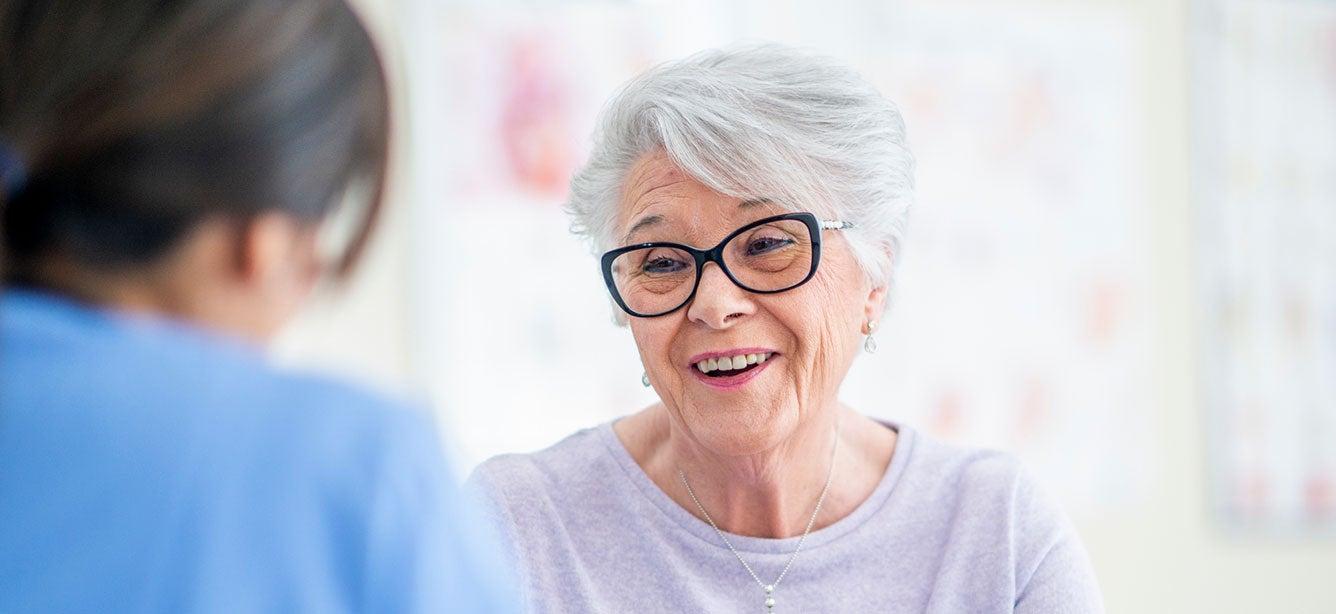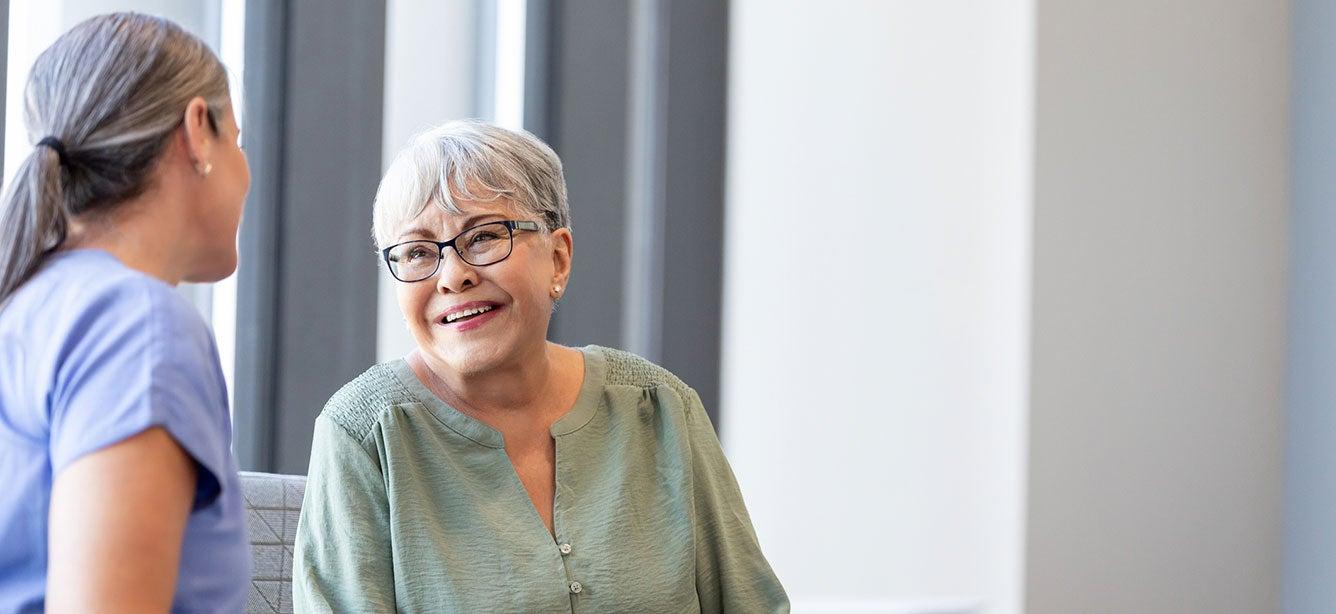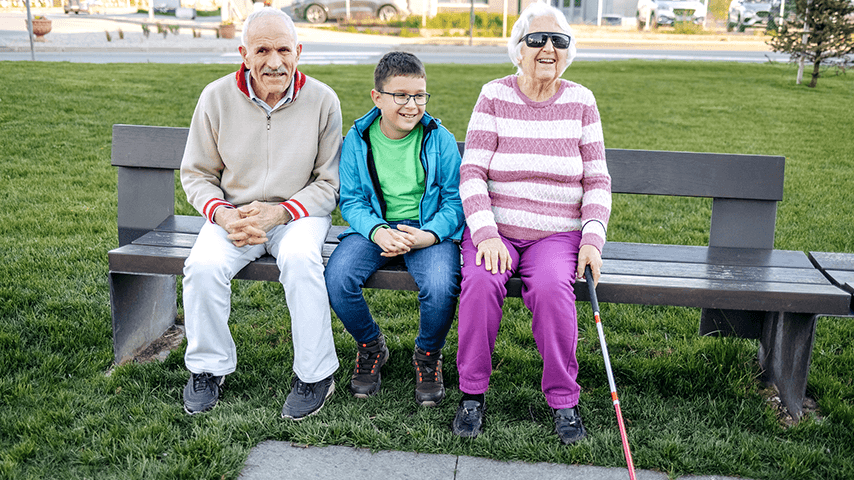Identifying Undiagnosed Vision Loss in Older Adults
4 min read

As professionals, it's sometimes challenging to identify vision changes in the older adults you support. Adults can experience a wide range of difficulties that vary depending on the cause and severity of their vision impairment. Other medical issues—in addition to vision loss—and the scope of these medical conditions can even be misdiagnosed when the primary issue may be vision loss.
That's why knowing what signs to look for and encouraging older adults to schedule regular eye exams with an eye doctor is crucial.
Although experiences and challenges can vary dramatically from one person to another, these are some of the issues and difficulties commonly associated with significant vision loss and how you can help.
Challenges in mobility that accompany new vision loss
People with blindness and low vision may have trouble navigating their environment, leading to bumping into objects and a fear of falling or experiencing other injuries. Navigating public transportation and visiting a new facility can also be challenging.
To increase mobility and safety, people with blindness and low vision can receive Vision Rehabilitation training to use mobility aids such as white canes and guide dogs, plus GPS-based and other apps to navigate in their home and community more safely, confidently, and independently. Be My Eyes is an app that connects people needing sighted support with volunteers and companies through live video.
Difficulties with everyday activities
Everyday tasks like cooking, cleaning, personal grooming, and home and finance management can become increasingly complex with significant vision loss. These challenges can extend to visits to a new facility or practitioner, especially when new paperwork and other documentation are required.
It is ideal to offer accessible versions of all reading materials, including forms, digital brochures, Privacy Policies, follow-up appointment reminders, and other paperwork, to ensure people with blindness and low vision enjoy full access to these essential documents. If you notice a client struggling to read printed materials, you can ask if added assistance would be helpful.
Fortunately, adults can learn other techniques to address everyday tasks—including home labeling, light & contrast, and a broad range of adaptive tools and devices. Talking devices—including clocks, prescriptions, and more and Access Technology, such as smartphones, screen readers, and a broad range of apps—make the world more accessible. Reading forms, books, or newspapers can be particularly challenging, and libraries and other resources offer audiobooks and books in large print format.
Social isolation and psychosocial impact of vision loss
Vision loss can result in reduced social interaction, so having local, accessible social events and venues is very important.
When older adults withdraw from social activities, they can experience profound feelings of loneliness and isolation—leading to increased anxiety and depression. Vision loss can create a tremendous sense of grief and loss, and it's crucial for older adults with vision loss to receive the training and support they need to adjust to vision loss.
Ideally, an older adult with vision loss can access vision rehabilitation services and added support as early as possible to ease the transition and provide a crucial level of acceptance and hope.
Maintaining independence and self-sufficiency with vision loss
As adults, we care for ourselves to maximize our independence. Vision loss often requires that older adults rely on others for assistance to manage the tasks they once handled independently. Vision rehabilitation, counseling, and added support can help adults remain more confident and independent, reducing their reliance on others and increasing their self-sufficiency and self-confidence.
Thriving through work and leisure activities
Maintaining hobbies and leisure activities is crucial to a rich life, especially for older adults who want to enjoy their retirement. As you work with older adults with vision loss, you can adapt any activities or provide alternate options to make activities as accessible as possible for vision loss. Remaining highly engaged can help adults with vision loss enjoy a much higher quality of life, happiness, and emotional well-being.
Significant changes in vision, blindness, and low vision can impact one's ability to maintain or secure a new position. Vocational Rehabilitation training and assistive technology are vital for adults who want to continue working with blindness and low vision.
Know the signs of visual impairment
In addition to the above challenges, as a professional working with older adults, there are other signs and symptoms of significant visual impairment. It's crucial for adults facing any of these vision issues or vision changes to see their eye doctor immediately to protect their sight:
- Any pain or discomfort in the eyes
- A sudden vision change
- Loss of central vision or peripheral vision
- Blurred, double vision, or difficulty focusing
- Floating Spots—an increased number of what are commonly called "floaters"
- Increased sensitivity to light or difficulty seeing in low light
- Loss of clarity of vision
How to help older adults living with vision loss
There are so many ways you provide support for adults you work with, and connecting adults with vision loss to vision rehabilitation and added resources is life-changing.
Visit Time to Be Bold to locate your area's vision rehabilitation services and other crucial resources. Connect clients with the APH hotline to speak with someone about support and access practical coping strategies for everyday tasks, remote discussion groups, and free online resources at the APH Connect Center and VisionAware. Architectural Digest also provides tips for making home modifications.



